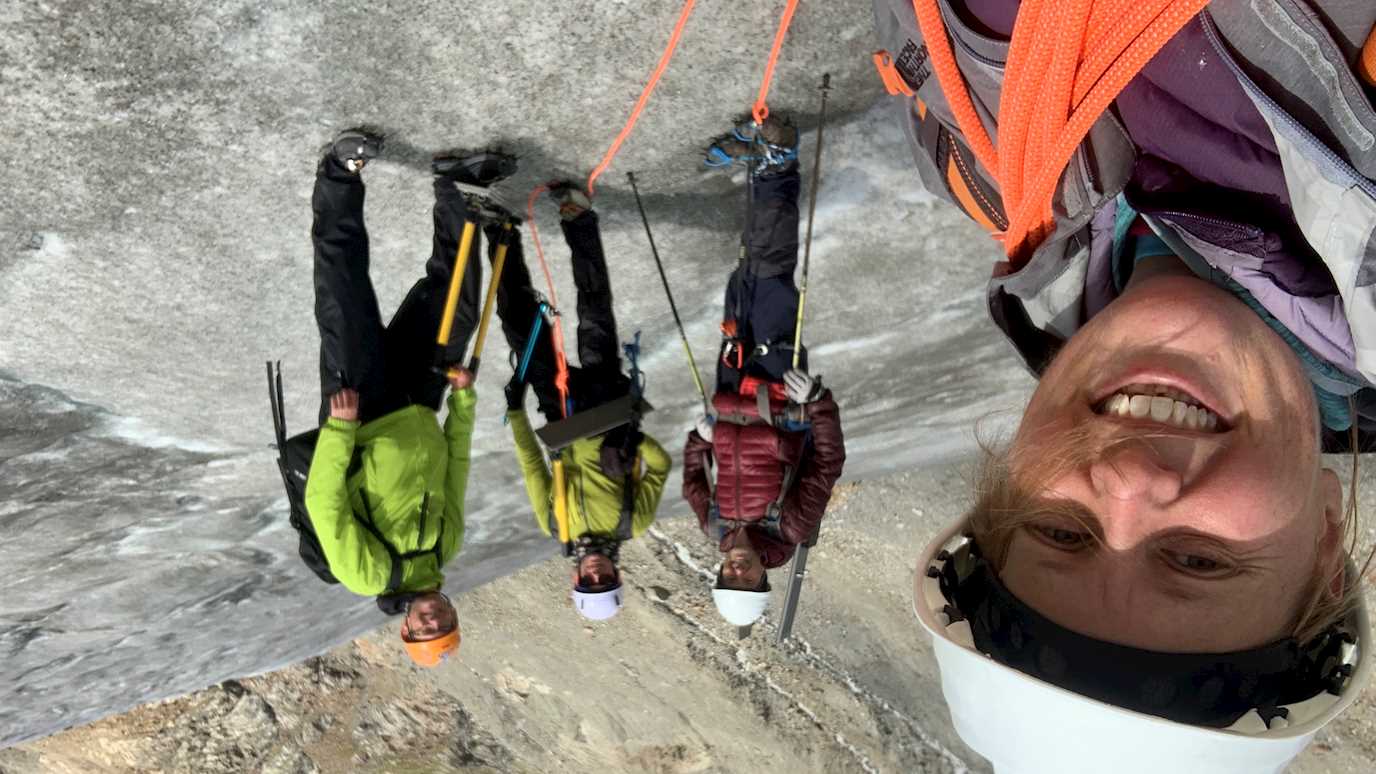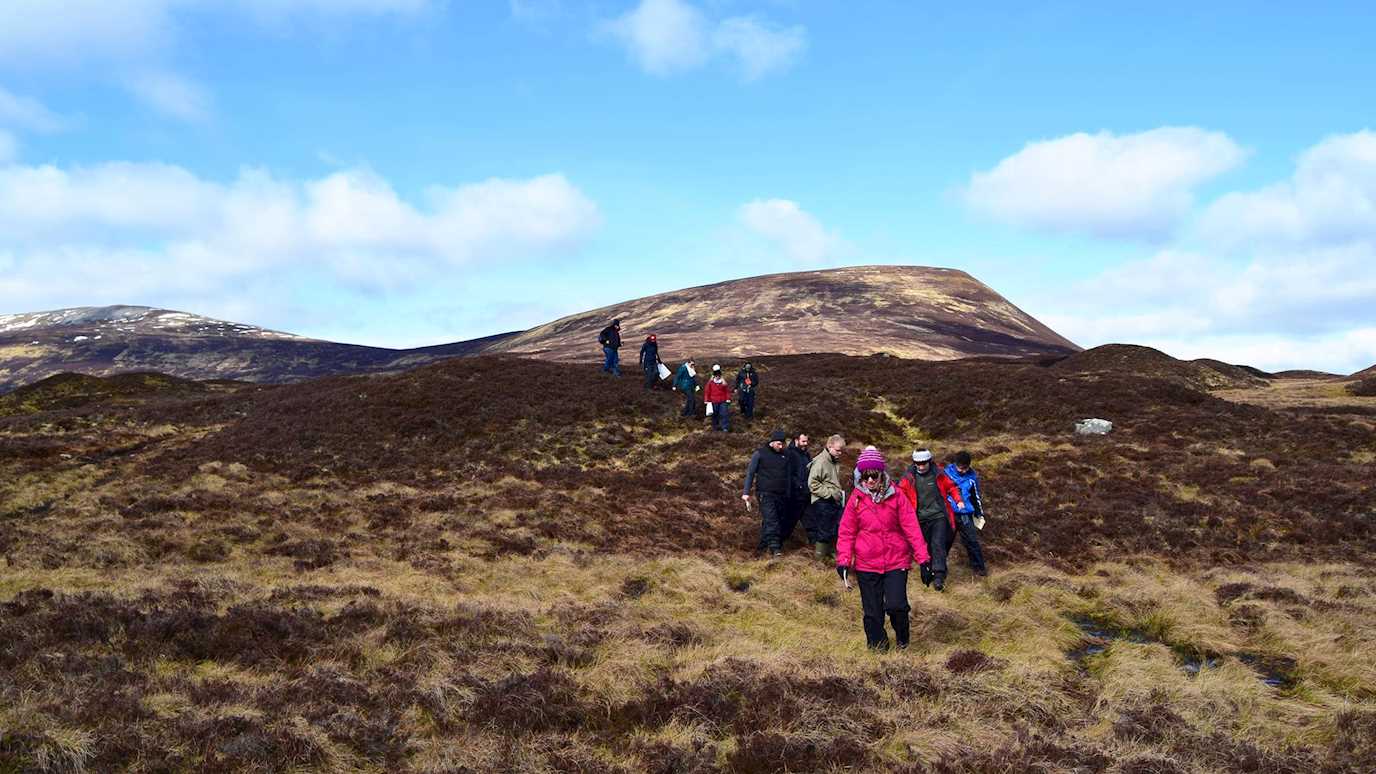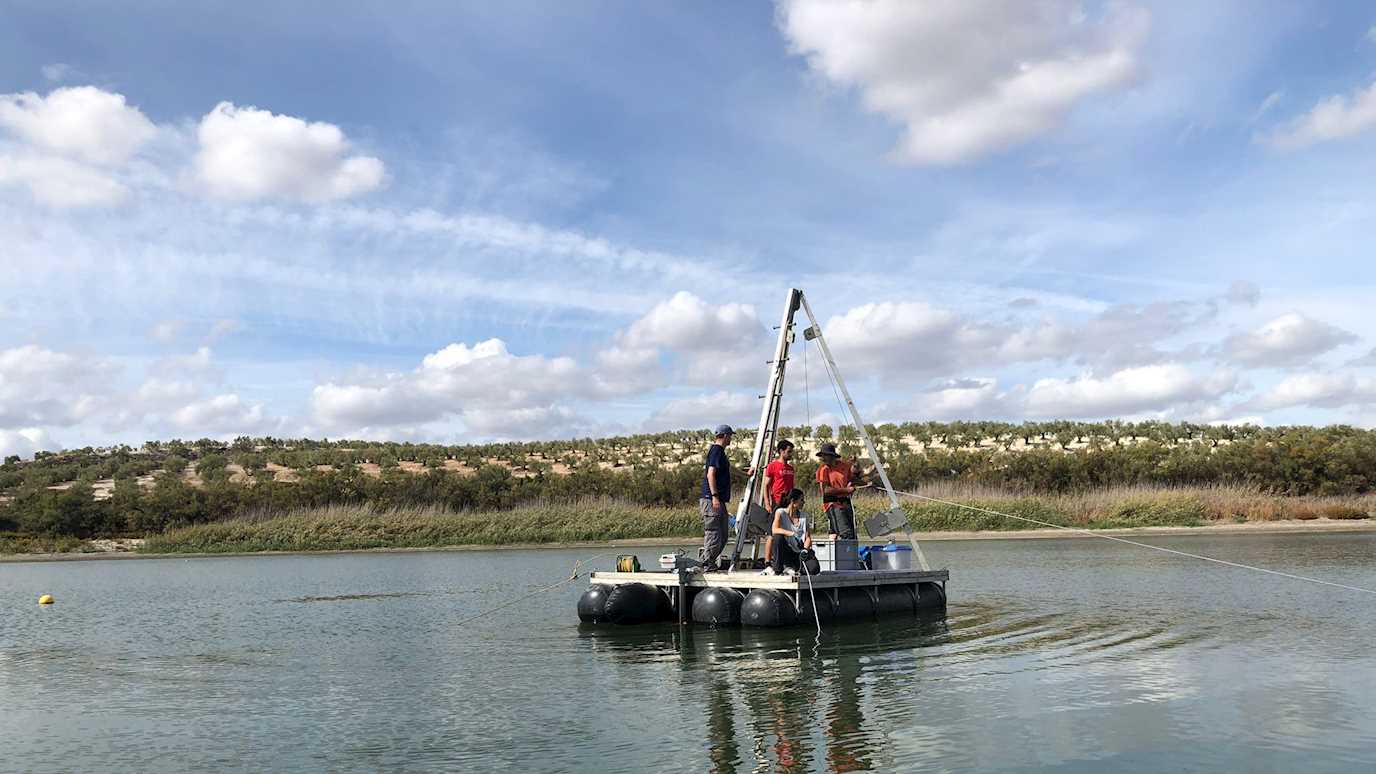Dr Bethan Davies, a glacial geologist in the Department of Geography at Royal Holloway, and an expert in the interaction between glaciers and climate over multiple timescales, has made a podcast for the daily BBC news podcast series Newscast on the alarming significance of heatwave temperatures recorded at both the North and South pole.

Dr Bethan Davies (left)
It’s currently spring in the Arctic, and it’s experiencing much warmer temperatures than is normal for March. The Arctic heat wave (temperatures about 30°C above normal) has been developing for a few days. There is a heat wave in the polar circle, and strong pressure gradients are driving warm air from further south into the polar circle. Colder air has been displaced and moved over parts of sub-polar northern Europe and Siberia, Canada and USA.
These warm temperatures may have important consequences for Arctic sea ice (frozen ephemeral sea water). As the polar sea ice melts, more dark-coloured sea water is exposed, which absorbs more heat and can warm the planet further (we can call this polar amplification).
In Antarctica, the situation is rather different, where it is approaching winter now. Here, an atmospheric river, a tendril of water-laden warm air from the Pacific, has reached Antarctica. This has resulted in temperatures 40°C above normal in parts of East Antarctica. There was even rain reported in Antarctica. However temperatures are still below 0°C and likely most of the rain refroze in the snow pack. Temperatures are more similar to the kinds of temperatures we see here in mid-Summer.
Dr Bethan Davies comments:
“These kinds of extreme weather events are occurring with more frequency in our warming world. Atmospheric rivers have been known previously in Antarctica, but not of this magnitude. This event was especially large, warm and significant. If we saw an event of this magnitude in West Antarctica, this could cause serious issues with the floating ice shelves.
Ice shelves are floating extensions of land glaciers, and they hold back land ice, like a cork in a champagne bottle. If we remove the ice shelves, then we can get a lot of ice transferred to the ocean, rising sea levels. Ice shelves are vulnerable to heating from below and from increased surface melt and these kinds of events could have serious consequences for the health of the ice shelves and damage to the snow pack.
Overall this is a concerning event and a symptom of increased extreme weather in a warming world.”
Listen to the BBC Newscast podcast ‘The Thaw that Counts’ here:
























